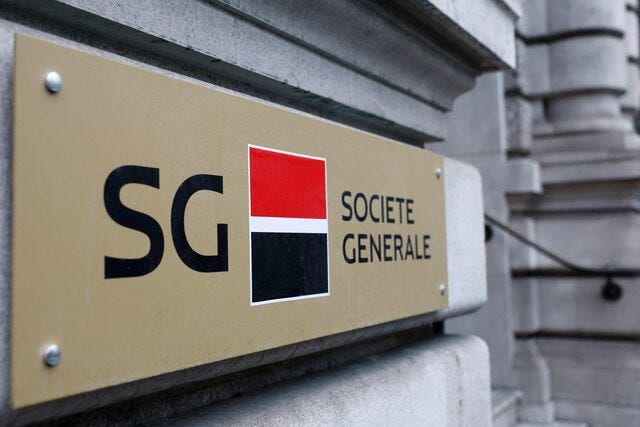For years, European banks were seen as fixtures in Africa’s financial landscape, their logos emblazoned on branches from Dakar to Nairobi, symbols of global finance planted firmly on African soil. But that picture is changing rapidly. Over the past decade, one after another, Europe’s best-known institutions have been quietly exiting the continent, selling subsidiaries, trimming retail portfolios, or shutting down entire networks.
The latest chapter in this unfolding story came in Mauritania this August, when Société Générale finalized the sale of its local arm to a consortium led by Enko Capital and Oronte. The transaction might look small on paper - just 11 branches and about 40,000 customers - but it speaks volumes about the way Europe is retreating from markets it once considered central to its international ambitions.
Why Europe is pulling back
The reasons behind this retreat are layered. On the one hand, global financial regulations have tightened, forcing banks to hold more capital, scrutinize risk far more aggressively, and prioritize compliance above all else. Memories of the record fines slapped on European banks for sanctions violations and money-laundering failures still loom large in boardrooms.
On the other, the promise of high returns in African retail banking has not materialized as expected. Running branches in far-flung markets is expensive, loan defaults are stubbornly high, and competition from nimble mobile money operators has chipped away at margins. For big global players under pressure to deliver steady returns to shareholders, Africa has increasingly looked like a distraction rather than an opportunity.
African champions step up
Yet where one group sees trouble, another sees potential. African banks themselves have been the fastest to move into the space left behind, treating the exits of Société Générale, Barclays, and Standard Chartered not as a crisis but as an opening. Nigeria’s Access Bank has been particularly aggressive, buying up operations shed by its European counterparts and stitching together a truly pan-African network that reaches far beyond its Lagos headquarters.
In Morocco, private investment groups have taken over Société Générale’s local units, even rebranding them under new names that aim to project confidence and local pride. These institutions bring with them a deeper understanding of African consumers, a willingness to experiment with digital services, and an appetite to serve smaller businesses and households that never fit neatly into the strategies of global players.
America senses opportunity
At the same time, the United States is moving in the opposite direction of Europe. JPMorgan, already a presence in South Africa and Nigeria, has announced plans to set up shop in Kenya and Côte d’Ivoire, signaling that Wall Street sees opportunities where Europe sees headaches. Citigroup, which has maintained a steady African presence for decades, continues to operate in over a dozen countries and looks well positioned to benefit from a continent that is still starved for sophisticated financial services.
The American approach is different: it is less about retail branches and more about corporate and investment banking, treasury services, and the high-end dealmaking that African governments and large companies increasingly demand. In 2024, U.S. banks dominated the advisory tables for the biggest mergers and acquisitions on the continent, a sign of the kind of niches they are targeting.
What this means for Africa
For African economies, this changing of the guard is a mixed blessing. In the short term, the retreat of long-established European banks could mean fewer channels for accessing foreign exchange and less competition in retail banking.
Trade finance, the plumbing that allows goods and capital to move across borders, risks being squeezed if correspondent banking ties thin out. Analysts at think tanks across the continent have already warned that these trends could undermine the grand ambitions of the African Continental Free Trade Area, which relies on robust financial linkages to succeed.
But in the longer run, the story could look very different. Africa is home to some of the world’s fastest-growing economies, and its population is projected to more than double by mid-century.
Local banks that are scaling up now could become the champions of this new era, financing infrastructure projects, supporting small businesses, and building digital platforms that make banking accessible to millions who remain unbanked today. The arrival of U.S. lenders adds another layer, bringing global capital and expertise into markets that need both.
What is emerging is not the retreat of finance from Africa but a reshuffling - Europeans stepping back, Africans and Americans stepping forward, and the continent itself entering a new phase where its financial future may be shaped less by legacy colonial ties and more by local ambition and global competition.

